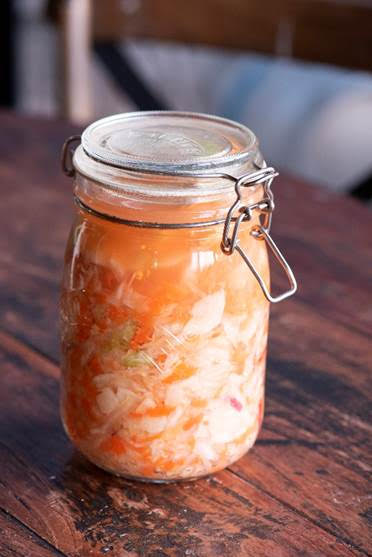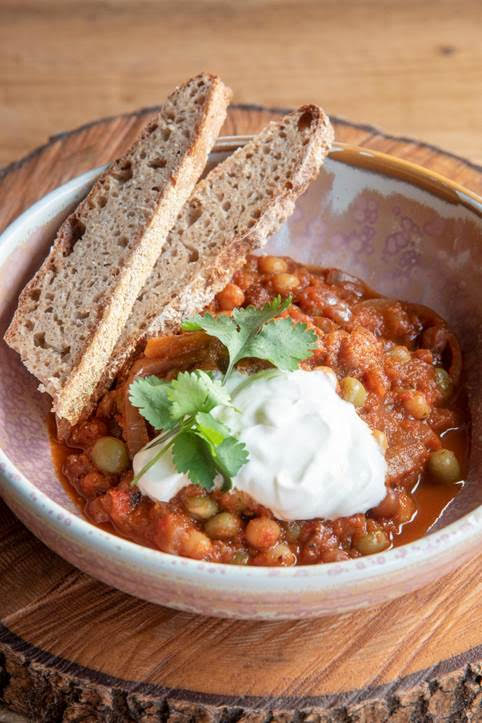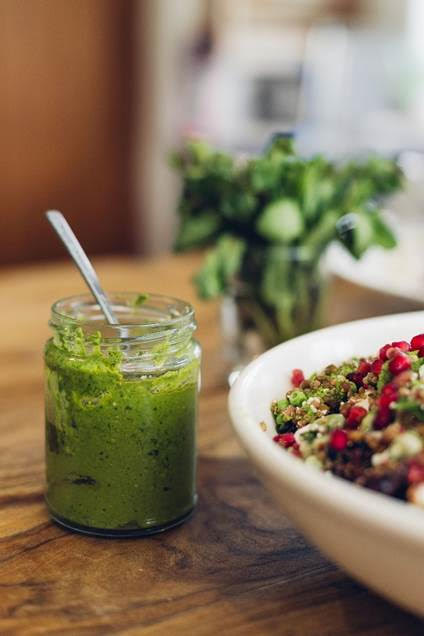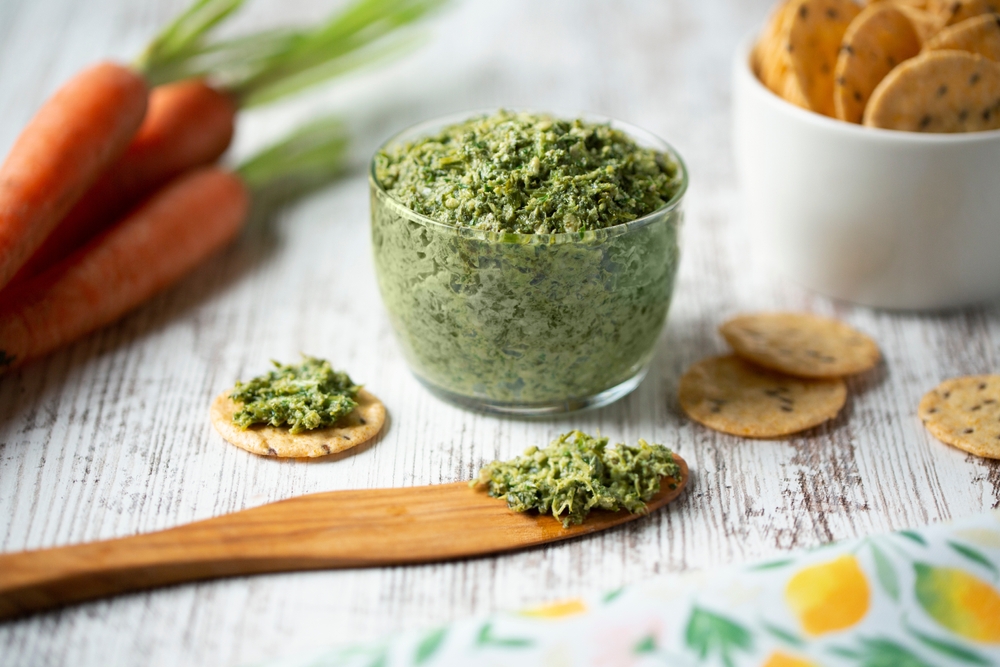Top Tips to Look After Your Digestive Health Over the Festive Period
With party season fast approaching, it might not just be the goose that’s at risk of getting fat! How do we help our bodies survive the weeks of rich food and alcohol as we celebrate Christmas?
Award winning nutritionist and gut health specialist, Dr Lucy Williamson holds the gut microbiome at the core of a healthy body and mind so looking after our gut health will ensure we survive the excesses of the season!

“The festive season is a wonderful time for getting together with friends and family and we all tend to cram way more socialising into that two-week period than any other time of the year. The inevitable party food and celebratory glasses of alcohol take their toll not just on our digestion but on our sleep patterns and moods too. However, paying a little extra attention to our gut health can help us survive, and enjoy, Christmas while preparing us for the demands of the new year and winter too!”
Here are Lucy’s top tips to look after your digestive health over the Christmas period:
- Alcohol – A glass of red wine can be beneficial for our gut health as it contains antioxidants which our good gut bugs love! For this same reason, cider can also be a good choice as apple skins are rich in antioxidants too. However, balance is key of course…… why not try mixing in alcohol-free days and enjoy a sophisticated glass of sparkling tea – these Kombuchas can still feel like a lovely treat but give your liver a break! They’re also low in sugar to help your waistline over the Festive period (we often forget that red wine, cider, beer etc are high sugar drinks) and being naturally probiotic can support our digestive health too. (Just a reminder that the recommended weekly alcohol intake for men and women is 14 units. This equates to about 1 pint of beer or cider daily, or 1 glass red wine daily)
- Sleep – Christmas is such a busy time, but we know that sleep is vital to nurture our gut microbiome and digestive health; this is partly due to its effect on our gut brain axis – the pathway by which our gut impacts our emotional wellbeing. If it’s hard to get in your 8 hours, try a lunchtime power-nap – our natural daily rhythm really wants us to do this! To drop out of carrying too much tension, try a short walk, some stretches in the garden or a 10-minute breathing meditation for example.
- Eating late – we all love a party – which means eating later and less of an overnight fast which can really disrupt our gut brain axis, gut health and digestion. If you’ve eaten late the night before, try to adjust for this by having breakfast much later the next day so you still get at least a 12 hour fast.
- Probiotic foods – eating these little and often can be really helpful for balancing our good gut microbes – a small glass of kefir half an hour before breakfast, substitute in raw apple cider vinegar into your seasonal vinaigrettes, keep some sauerkraut in the fridge; it’s a great accompaniment to your festive cheeseboard – you can make these easily at home too – try my recipe below
- Liver – dish out the love with high quality protein – fish and chicken are good choices or try some lovely lentils, pulses and beans for good quality plant protein, like in a warming bowl of bean chilli
- Plant variety – a great way to keep your gut happy is to remember to include as much plant variety as you can across all your meals. The ideal is 30 plants a week. Here are some easy ways to do this:
- Nuts and seeds sprinkled on your breakfast bowl, soup or roasted veg.
- Remember spices and herbs count in the 30 a week too, so enjoy these ingredients in your favourite festive recipes like leftover turkey in a tasty curry!
- Make simple veg dishes extra gut-loving by adding in extras eg
- sautéed leeks with quickly prepared peas,
- winter herbs added into stir fries & roasted veg,
- dress potatoes with a lovely herby mix like mint, parsley and oregano,
- try a homemade green pesto to use with pasta in emergencies
- add extra fibre into your morning porridge – I love to use chia seeds, barley flakes, puffed quinoa and a sprinkle of cinnamon with my oats so it’s a five-plant porridge!
Lucy has provided some recipes to help nurture your gut microbiome between parties:
HOMEMADE FERMENT

Makes 1 litre
Prep time:
Cooking time:
You will need:
1l glass kilner jar
1 large ceramic or glass bowl
Sharp knife
Ingredients:
NB: If you can, use organic fruit and veg for best results.
- 500g white cabbage & 500g carrots
- 1 red skinned apple.
- 2 cm piece of root ginger
- 2 tbsp sea salt
Method:
- Sterilise your jar – wash out well with hot, soapy water and put in an oven heated to 140 Degrees C for at least 10 minutes. Allow to cool completely before using. Ensure all other equipment is very clean. Remove jewellery.
- Thinly slice the cabbage, apple and carrots – I use a spiraliser for the carrot, but you could grate it too. Mix together in your large bowl with the salt. Press down well to release as much liquid as possible – this takes about 15 minutes working the salt into the veg, pressing as you go. You’re aiming for your shredded veg to be limp and easy to squeeze out its water. Add in the thinly sliced ginger.
- Transfer to the glass jar, a little at a time, pressing each addition into the jar so that its water keeps it submerged. Once all the veg is in the jar, ensure it is fully submerged under the liquid – you can use a piece of cabbage stalk to fill any space left between the veg mix and the lid so that once closed, this keeps the veg submerged.
- Leave to ferment at room temperature (out of direct sunlight) for 1-4 weeks. Once opened, store in the fridge and enjoy within 4 weeks if it lasts this long!
- Serve as a side with salads, a quinoa lunch bowl or with cheese and crackers.
WARMING BOWL OF BEAN CHILLI

Fabulous plant diversity for gut health including spices and herbs which all count towards your 30 a week! Beans and pulses are a good source of protein too and buying them dried saves you money.
Serves 4
Prep time 10 mins
Cook time 20 mins (beans need soaking overnight)
Ingredients
150g mixed dried beans eg Red Fox Carlin/ Yellow Pea/ Red kidney
2 small red onions
4 garlic cloves
2 tins chopped tomatoes
2 red peppers
4 fresh chillies, chopped and seeds removed
1 bunch coriander
2 tsp dried coriander
2 tsp dried cumin
2 tsp smoked paprika
Cold pressed rapeseed oil
Method
- Soak the dried beans in water overnight. The following day change the water and cook the beans according to instruction.
- Thickly slice and grill the red peppers to blacken very slightly.
- Slice one red onion and grate two garlic cloves. Sweat down in a pan with a splash of cold pressed rapeseed oil on a low heat.
- Add the tomatoes and 50ml of water to the onions. Add the cumin, smoked paprika and salt and pepper to taste.
- Blend the fresh chilies with the coriander stalks, 2 garlic cloves and half the red pepper to make fresh chilli paste.
- Season the sauce and add the fresh chilli paste. Add the cooked beans and check seasoning again. Slice the remaining red pepper and add in. You may like to add more cumin/paprika to taste.
- Serve with chopped coriander leaves and a dollop of greek yoghurt.
WATERCRESS & SPINACH PESTO

This is a brilliant skill to get used to quickly making at home as It can add a burst of flavour to many different dishes from risotto to baked fish or grain bowls.
Makes 1 medium jar
Keeps in the fridge for 1 week
Prep time:
Cooking time
INGREDIENTS:
- 25g watercress (including the stalks)
- 50g spinach
- 50g frozen peas, cooked
- 2 small garlic cloves
- 20g grated (or crumbled) parmesan
- 25g pecans (or walnuts which give a more bitter flavour)
- 50 ml extra virgin olive oil
- A squeeze of lemon juice
- Salt and pepper to taste
METHOD:
- Wash the leaves and blend half of them with all the other ingredients
- Add the rest of the leaves and blitz to a thick paste
- Store in a sterilised recycled jar – add a layer of olive oil to stop the pesto discolouring with contact with the air then add the lid
OPTIONAL/ALTERNATIVE
- Experiment with other leaves when in season – basil and rocket are also great in pesto
- Go foraging! Young wild leaves like nettle and wild garlic mustard add huge flavour and nutrients
INTERESTING!
There is growing evidence about the benefits of the bitter taste in foods – watercress, walnuts and other bitter leaves not only add wonderful flavour but the nutrients that give this bitter taste also help our natural appetite mechanism to work well (satiety) and deliver age defying antioxidants too!
So go ahead – have yourself a merry little Christmas but spare a thought for your gut and gift it some nurturing foods between celebrations!
For more nutrition and gut health advice, visit www.lwnutrition.co.uk





